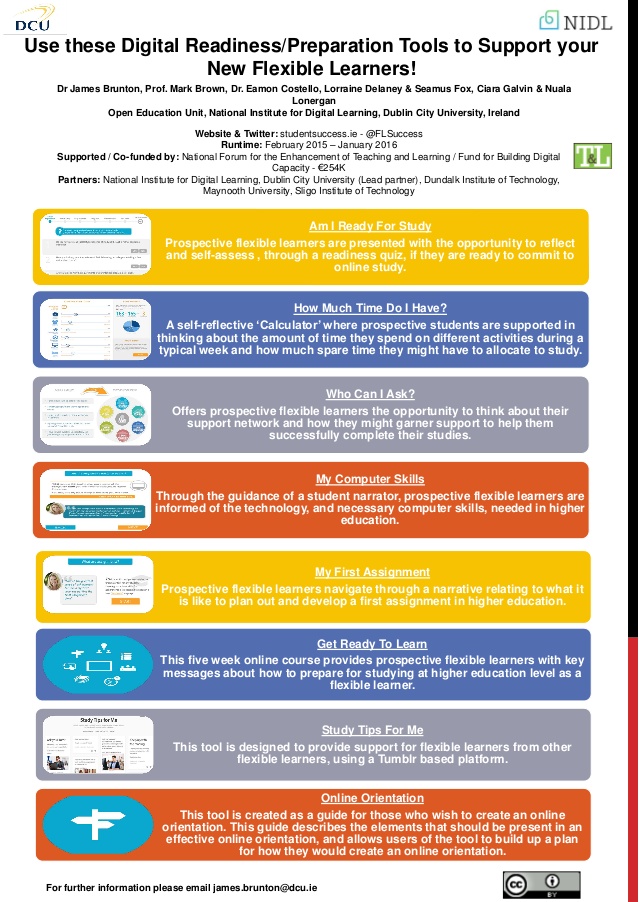Student success
Introduction
Student success refers to a student's ability to complete an educational module or program.
Student success can be defined very tightly as in Brown et al. (2016). [1]: “[..] being: where a student moves beyond the early stages of the study life cycle, i.e. beyond the first few weeks of study, without exiting their programme of study/the institution; or, makes an informed decision not to study having reflected on their readiness for study at higher education level”.
These authors [1] conclude a section on "what do we know about student success" (p. 22) “In summary, it is challenging to define the core concerns that impact success in a flexible learning setting, but there are a number of useful elements and aspects that surface from the literature on retention and progression. These include concerns for the deeply social and personal nature of the learner experience, including the need to address difficulties around personal circumstances, institutional and course matching practices, the affective dimension of the academic experience, readiness for higher education, and the social dimensions of transition. Learners impacted by multiple difficulties are particularly at-risk.”
Improving student success
A first strategy is to help transition, e.g. make sure that a learner will be able to cope with a new type of environment (e.g. moving from high school to university).
The team from the Student success project created a poster with the following objective:
(Use these Digital Readiness/Preparation Tools to Support your New Flexible Learners!, retrieved March 1, 2017)
Bibliography
(to do)
- See: http://studentsuccess.ie/publications/ (e.g. look at the bibliography in the 2016 report )
Citations
Links
- http://studentsuccess.ie/
- Transfer Student Success Publications (Association of American Colleges & Universities)
